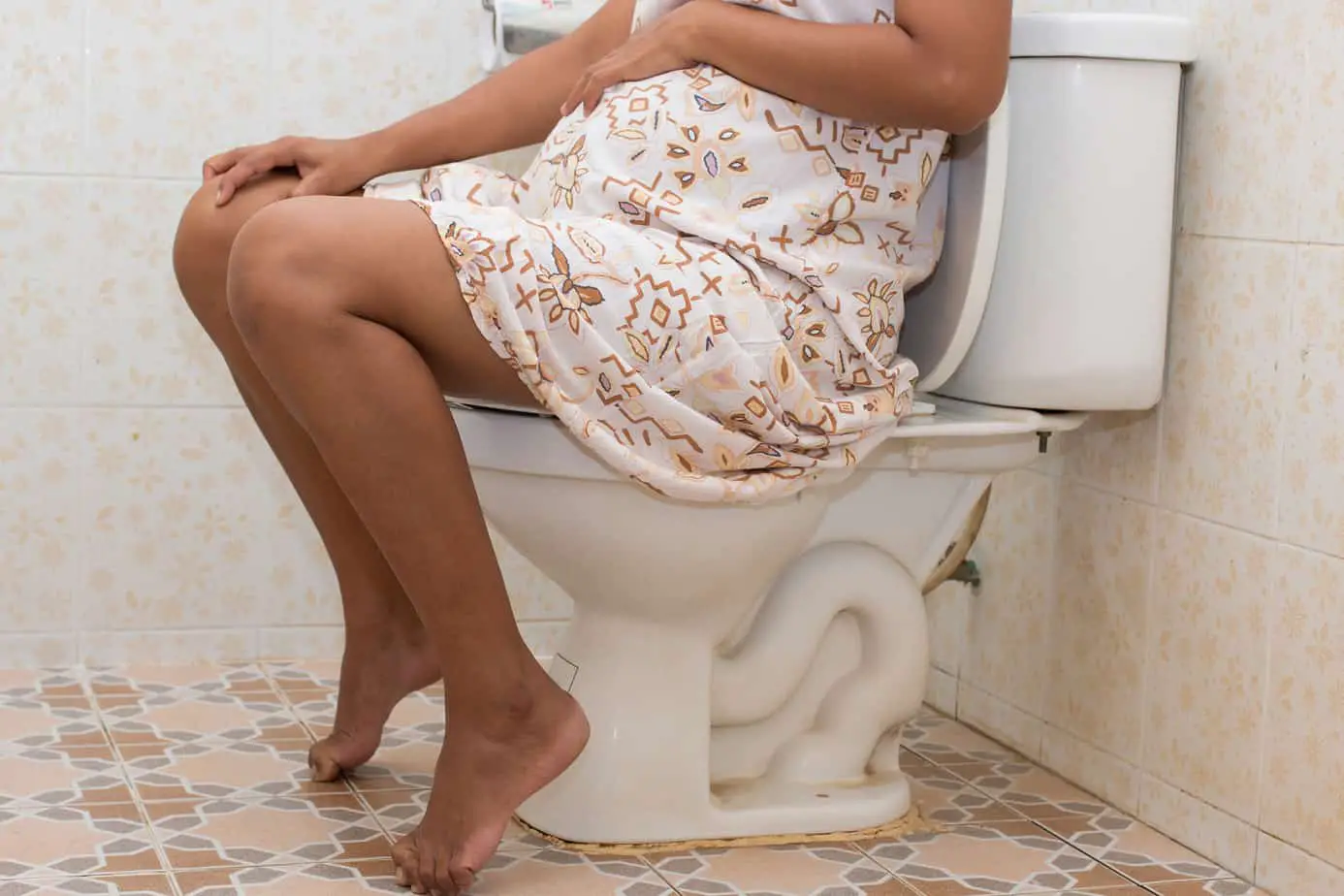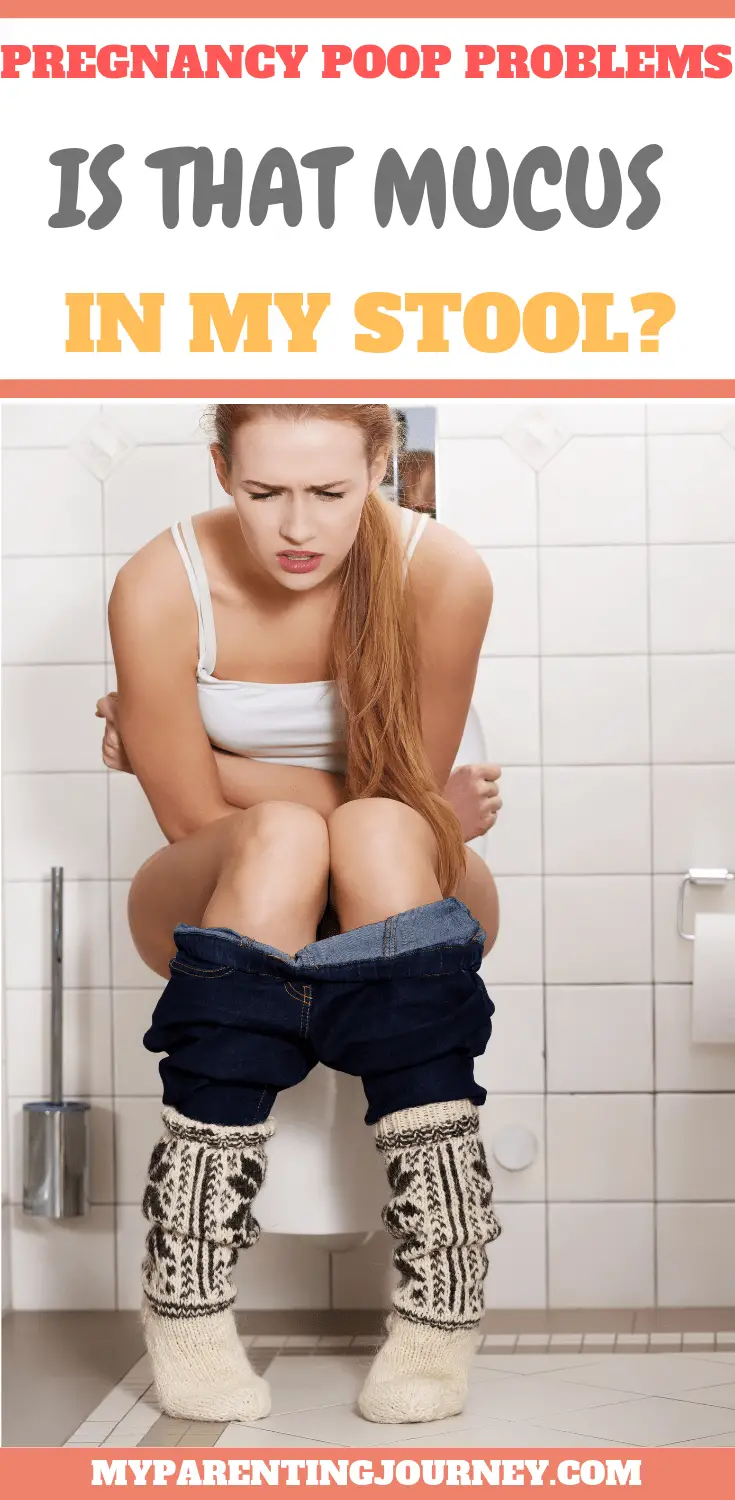
Pregnancy can truly wreak havoc upon any woman’s bodies. From leaking colostrum at random and often inopportune times, to getting kicked in the bladder and urinating, there are many aspects of pregnancy that simply don’t “glow.”
To add to the discomfort, some of the bodily malfunctions can seem embarrassing to expectant mothers, and they may find it hard to discuss any issues they might be having. For example, what is going on if you see mucus in your stool?
The Truth About Mucus
The mucus that comes out of our nose or drains down our throats isn’t the only mucus present in our body, and despite how disgusting that image is, it’s actually a good thing.
Mucus serves as a form of lubrication throughout the body, allowing things to travel more easily through or out of our bodies. This means that we even have mucus in our colon, and it is excreted into our stool in very small amounts- usually invisible to the naked eye.
If you’ve happened to notice some present in your poop, there are a few reasons it could be making its grand appearance.
Hormones and Prenatals

When pregnant, a woman’s hormones are changing in rapid and uncontrollable ways.
When such hormonal changes are also combined with the changes that vitamins and minerals can have on the body, it can sometimes do funky things.
For example, the magnesium might make you have stomach cramps and diarrhea, while an increase in zinc could increase nausea. The same can be said with the combination of progesterone (a normal pregnancy hormone), iron, and calcium.
All of these things can change the way your digestive process is functioning and cause constipation, leading to visible mucus in your stool.
Hemorrhoids
If you’ve ever had, or currently have, one of these, you know they are far from pleasant.
In truth, everyone has hemorrhoids.
They are merely normal pockets of tissue filled with blood vessels that aid our bowel movements. It’s when they become enlarged that they become unpleasant, and often times, embarrassing.
Hemorrhoids can cause a variety of problematic symptoms such as itching, a burning sensation, painless bleeding, and mucus discharge.
Unfortunately, thanks to hormones and the other changes to your body, being pregnant makes you more susceptible to having enlarged hemorrhoids, and thus, more likely to find mucus in your stool.
Other Causes
There are several other reasons that you might see visible mucus in your stool. These can be bacterial infections, anal fissures, a bowel obstruction or Crohn’s disease. Other, less serious causes could be dehydration and constipation.
If you were to see increasing amounts of mucus in your stool, blood or pus, have sudden change in frequency or color of your stool, or are suffering from stomach cramping, then call your doctor to ensure that you haven’t developed an illness.
What Can I Do to Prevent Mucus in My Stool?

If the mucus isn’t occurring frequently, and you have no signs of an illness, then there is no reason for you to be alarmed.
With that being said, being able to see the mucus means that your digestive tract is a little off-key and could use some assistance. Here are some ways to help:
1. Drink 8 or More Glasses of Water a Day
This can seem impossible when you’re likely running to the bathroom to pee a million times a day, but this and fruit juices like apple, grape, or prune juice can help to regulate constipation as well as hydrate you.
In addition, some fruit juices also have small amounts of fiber which can be beneficial for your digestion as well.
Consider using a water bottle that helps you track how much water you have drank throughout the day.
2. Get in Some Exercise
It’s a lot to ask, right? Many of us struggle or have struggled with trying to find the energy to exercise during pregnancy, but even a small amount of exercise, such as 10 minutes a day, can be extremely beneficial for all aspects of our health, but especially for our digestion.
3. Get in Your Fiber
No, you don’t have to choke down some disgusting orange-flavored powder drink. In fact, fruits and juices, vegetables, beans, and whole grains (like oatmeal) are excellent sources of fiber.
There are also plenty of snacks made specifically for the purpose of increasing your fiber intake that are downright delicious. Fiber is responsible for getting the water you consume into your digestive tract and intestines, which in turn helps to soften your stool and ease constipation.
But, keep in mind, increasing your fiber without proper hydration can also lead to constipation.
4. Talk to Your Doctor about Pregnancy-safe Stool Softeners
Despite how tempting it can be in a time of constipation or stomach trouble to “flush it out” with a dose of laxatives, this can be unwise during pregnancy. Laxatives can cause dehydration which can lead to future constipation or other complications during pregnancy.
Instead, it is better to choose a pregnancy-safe stool softener. These, like fiber, help to pull the hydration to your bowels, making it easier to pass your stool.
Don’t Be Afraid to Ask
Overall, it’s not uncommon to see some mucus in your stool while you’re expecting, but if it is a genuine concern for you, don’t be afraid to talk to your doctor about it.
Discussing bowel movements is an uncomfortable topic for anyone, but doctors are professionals who are there to help you, not to judge you. It’s especially important if you have been having any of the illness-related symptoms above, as a bacterial infection left untreated could lead to pregnancy complications.
If you found this article to be helpful, please feel free to share it with friends or family.


